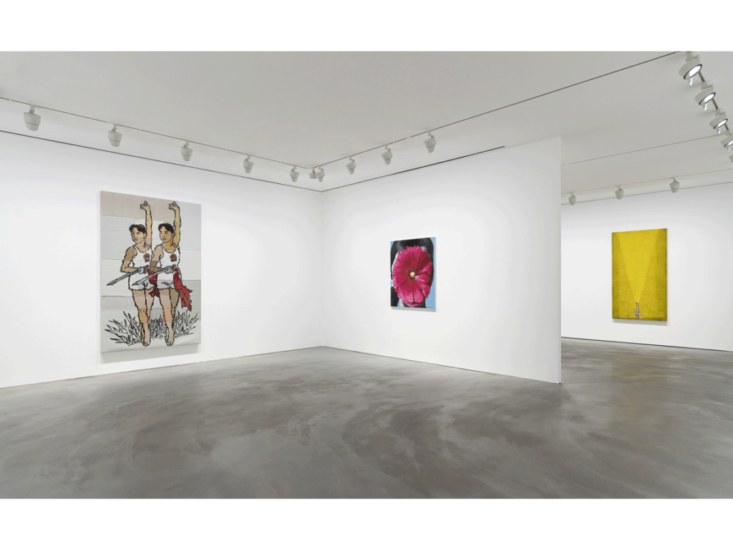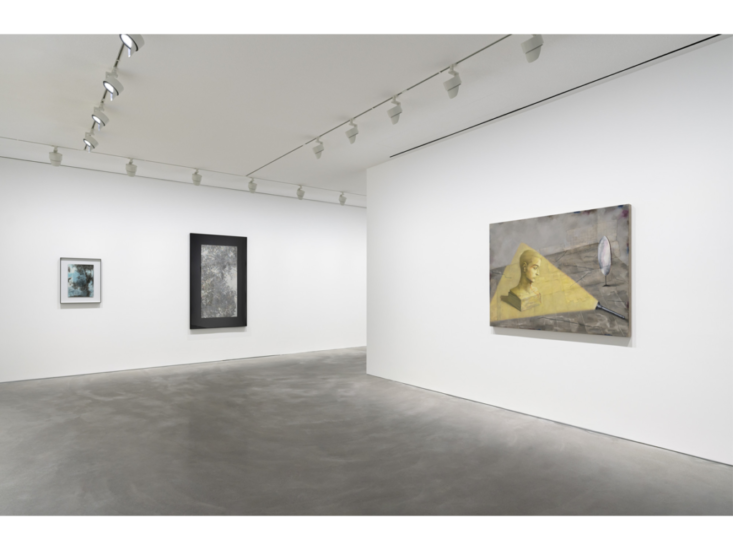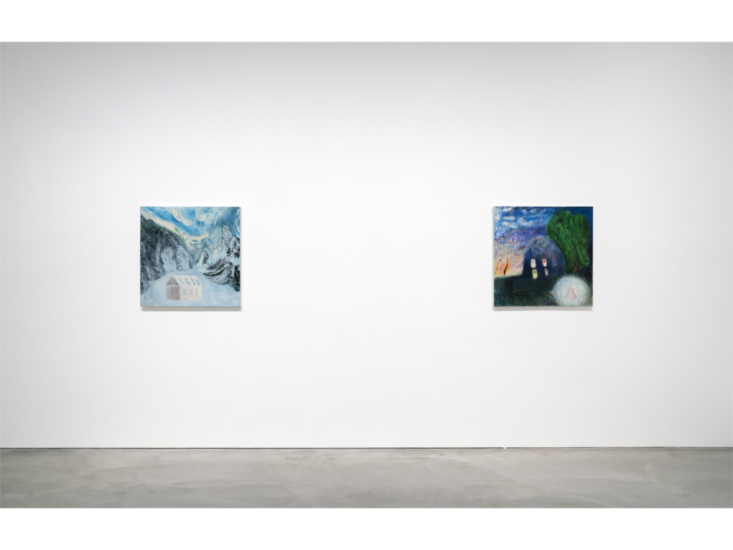EXHIBITION | HONG KONG
「Signs」
<Dates>Thursday , Mar 4 – Saturday, Apr 24, 2021
<Location> PACE
<Open> 12:00-18:00 Sunday, Monday CLOSE
Pace Gallery is pleased to present the group exhibition, Signs, at its Hong Kong space in H Queen’s. Marking the first exhibition of 2021 and the Year of the Ox, Signs reflects on the past year—and on the single gravest global crisis presented to mankind in the 21st century—by gathering a selection of work made by artists at the beginning of 2020 in response to the pandemic. The show features paintings and drawings by China based artists from Pace’s roster, including Li Songsong, Mao Yan, Qiu Xiaofei, Sui Jianguo, Yue Minjun, and Zhang Xiaogang, including several pieces that have never been exhibited publicly. The exhibition will be on view March 5 – April 24, 2021, with a preview on Thursday, March 4 from 4–7 pm.
The exhibition examines the creative response of these artists in the earliest days of the pandemic, and acts as a means of reflecting on our social mechanisms and the value systems of our civilization that came to light during this year of unrest.
As Zhang Xiaogang (b.1958) wrote in a diary he kept during the pandemic, while the role of the artist is not to respond instantly to world events and to incorporate this activity into their work, in retrospect certain marks can be traced in their output from the period. The Signs exhibition includes the two most recent paintings by Zhang which continue his experimentation with collage from his New York solo exhibition in 2018. The more recent works incorporate more concrete connotations: the materials resemble manuscript paper, or that of a letter, and are the carrier of thoughts and emotions, yet the absence of content alludes to a deep void. Time has always been a central theme of Zhang’s art—relying on the multidimensionality of a canvas, the artist is able to explore the overlapping and interlaced psychological perception of time. However, unlike the many historic events the artist has been through before, the unique so-called “collective sense of time” of 2020 is reflected in an experience of a sudden deceleration or even suspension of time. During the period of self-quarantine, Zhang tried for the first time to complete a painting at a slower pace. In the process of repeated deliberation, small details beyond the established composition emerged spontaneously.
The new series created by Yue Minjun (b.1962) during the pandemic also reveals the artist’s response to the current situation. In Hollyhock, he introduces flower imagery into his famous portrait painting with highly saturated colors, so that images of flowers flood and rupture the whole picture with their exploding blooms creating a sensational experience for the viewer. The two oil paintings included in the exhibition by Li Songsong (b.1973) were finished in 2020. His consistent style makes the influence of time on his works almost invisible. For Li, the work of a painter is closer to a kind of repetitive daily labor. His sources for inspiration vary, and Li is more concerned about the particulars of an image, for example, the treatment of colors, brushstrokes, and materials rather than symbolic meaning. The resulting paintings are ambiguous in subject matter as well as focus on the materiality.
Signs also stages new works by Mao Yan (b.1968) and Qiu Xiaofei (b.1977) that represent the recent shift in practice for both artists. Qiu’s two oil paintings titled Snow House 1 and Snow House 2 continue the use of imagery and symbols since his solo exhibition Fading Out in 2018. In the face of the mystery and impermanence of nature, the man-made structures—especially the house as a shelter—transitorily segregates the human body and spirit from the infinite, eternal nature. In Snow House 1, the house is transformed into a biological cavity in which the individuals could contain and preserve their emotions, memories, fantasies, and also personal narratives. On the other hand, Mao Yan’s two ink on paper works diverge from his iconic oil paintings with their lightness and openness embodied by the artist’s expedition outside of figurative expression. In Besides No. 5 (2020), there are circles connected or covering each other spreading spontaneously over the surface of rice paper. In the dialogue between Mao and his closest friend and writer Han Dong, he once made a clear statement about this motif of circle: it is the ”Shin Tan,” pill for the heart, for people to swallow and consume. In this sense, his realistic oil paintings are using portraits and still lifes as mediators to depict the invisible spiritual world, while the seemingly abstract paper works actually have more solid references and function. The two bring forward a set of interesting contrasts for viewers to understand the nature of the artists’ work.
Another highlight of the exhibition consists of four polyurethane-on-paper works by Sui Jianguo (b.1956) titled Zi, Chou, Yin, Mao (the first four Earthly Branches used in the Chinese ordering system), as part of the artist’s Night series. As a leading figure in contemporary Chinese sculpture, Sui distinguished his works on paper from the more serious form of painting to an intimate sketch closely related to his thinking and creative process. In his earlier experiments with ink pen on paper, the artist recorded the exact period of time his body spent with the paper through the strokes or traces left upon it. The foam polyurethane material adopted in these works adds to the randomness. Simultaneously, a relief-like effect is manifested through the certain thickness of the material itself, which enables the artist to further explore the definition and boundary of media such as sculpture and painting.
The exhibition Signs will be on view to the public through April 24.
PACE
https://www.pacegallery.com/
12/F, H Queen’s 80 Queen’s Road Central Hong Kong
tel:+852 2608 5065



